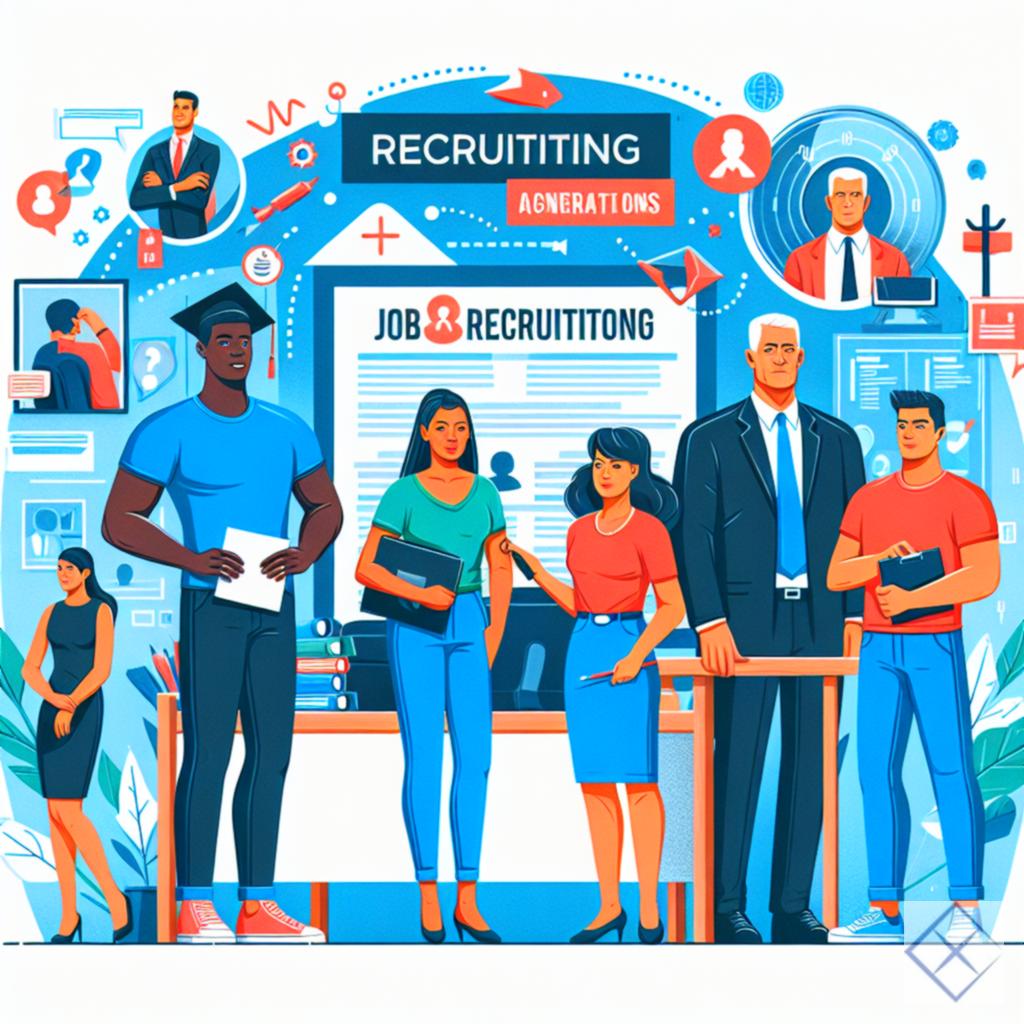Recruiting across generations

Recruiting Across Generations
In today’s rapidly evolving job market, understanding the generational differences among candidates is more crucial than ever. As recruiters, adapting our strategies to align with the preferences and motivations of various age groups can significantly enhance our talent acquisition efforts. My recent discussion with a colleague highlighted just how different our recruiting approaches need to be when targeting distinct generational cohorts.
Understanding the Generational Landscape
Each generation brings unique values, work ethics, and expectations to the table. Here’s a breakdown of how we can tailor our recruiting strategies based on the age group we are targeting:
Attracting Baby Boomers
Baby Boomers, typically defined as those born between 1946 and 1964, often prioritize stability and experience. To effectively engage this demographic, consider the following strategies:
-
Utilize Traditional Job Boards and Print Media: While digital platforms are ubiquitous, Baby Boomers are more likely to respond to traditional job postings. Consider using well-known job boards and even print media to reach this audience effectively.
-
Leverage Experience and Stability: Highlight the importance of experience in your job descriptions. Baby Boomers value companies that recognize their extensive background and expertise.
-
Promote Benefits and Retirement Plans: This generation is particularly concerned about their financial future. Emphasize robust benefits, retirement plans, and job security in your recruiting materials to attract their interest.
Engaging Generation Z
Generation Z, born from the mid-1990s to the early 2010s, has a very different outlook on work and career. To attract this tech-savvy cohort, consider implementing these strategies:
-
Implement Mobile-First Recruiting Strategies: Gen Z is the first generation to grow up with smartphones. Ensure your job applications and recruitment processes are mobile-friendly to capture their interest.
-
Highlight Innovation and Diversity Initiatives: This generation seeks out companies that are forward-thinking and inclusive. Showcase any innovative projects or diversity initiatives your company is involved in to align with their values.
-
Focus on Work-Life Balance: Gen Z places a high value on work-life balance and mental health. When advertising job openings, emphasize flexible working conditions, remote work options, and any wellness programs your organization offers.
Tailoring Recruitment Approaches
The key takeaway is that you cannot use a one-size-fits-all approach when recruiting across generations. For instance, a 35-year-old might not respond to the same messaging or platforms as a Gen Z candidate. Recognizing these differences allows us to create more effective and targeted recruitment campaigns.
Embrace a Diverse Recruiting Strategy
As recruiters, we must embrace a diverse recruitment strategy that resonates with the values and behaviors of various age groups. This involves:
-
Researching Demographic Preferences: Stay informed about the preferences of different age groups through surveys and industry reports. This will help you understand what drives their job search behavior.
-
Utilizing Multiple Channels: Leverage a mix of traditional and digital platforms to ensure you reach candidates across all generations. This may include social media, community boards, and industry-specific forums.
-
Creating Inclusive Messaging: Craft job descriptions and recruitment messages that appeal to a broad audience, using language that resonates with different age groups.
Conclusion
Recruiting across generations is not just about filling positions; it’s about building a diverse and inclusive workforce that reflects the values of our society. By understanding and adapting to the unique needs of each generation, we can attract top talent and create a workplace that thrives on varied perspectives and experiences.
For more insights on recruiting across generations, check out this article.
Feel free to share your thoughts or experiences on how you’ve adapted your recruitment strategies for different generations in the comments below!